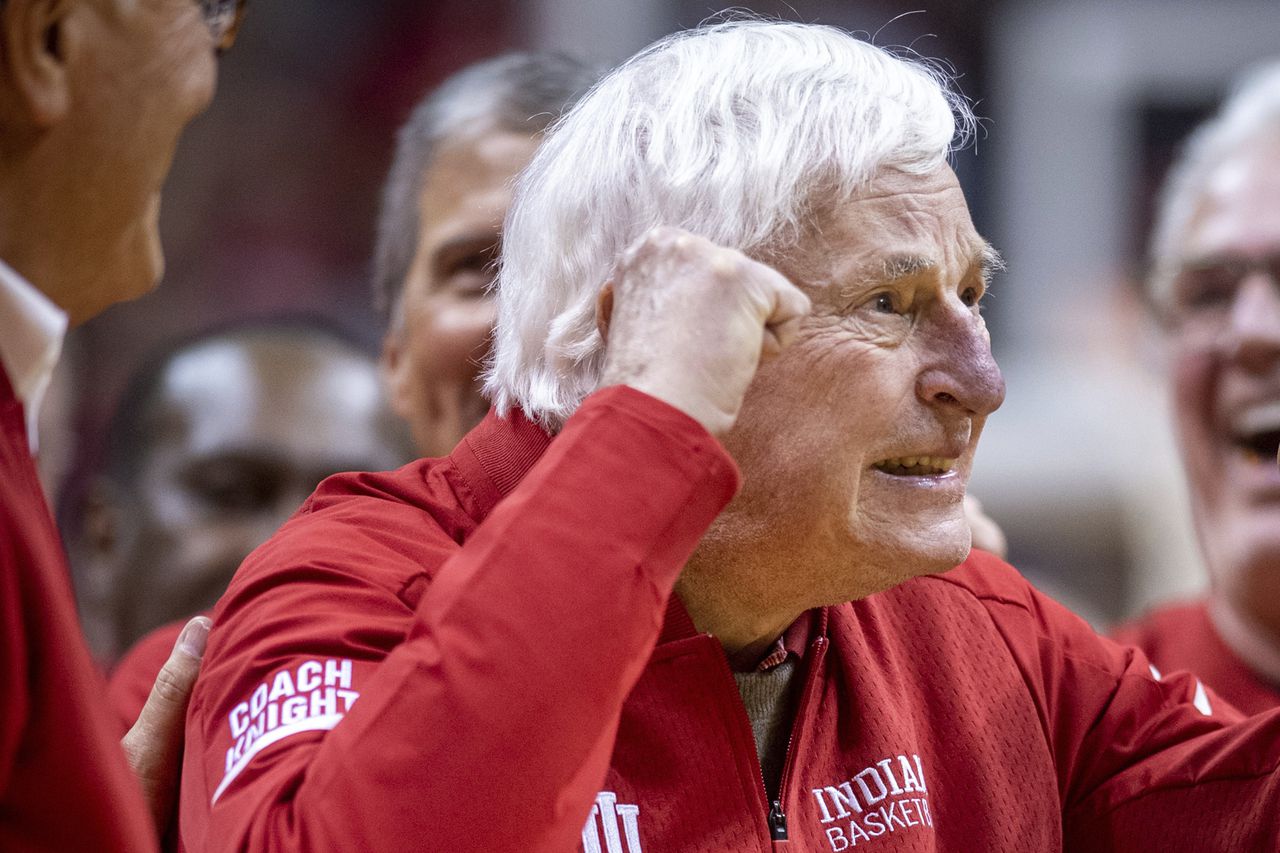Bob Knight, legendary Indiana basketball coach, dead at 83
Bob Knight, a college known for his outbursts as much as his wins, died Wednesday. He was 83.
The legendary Indiana coach is the sixth-winningest coach in Division I men’s college basketball history. Knight won three national championships with the Hoosiers in his Hall of Fame career.
“It is with heavy hearts that we share that Coach Bob Knight passed away at his home in Bloomington surrounded by his family,” the Knight Family said in a statement. “We are grateful for all the thoughts and prayers, and appreciate the continued respect for our privacy as Coach requested a private family gathering, which is being honored. We will continue to celebrate his life and remember him, today and forever as a beloved Husband, Father, Coach, and Friend.”
Nicknamed “The General,” Knight finished with 902 victories in 42 seasons at Army, Indiana and Texas Tech. He also coached the U.S. Olympic team to a gold medal in 1984.
RELATED: Sports world reacts to Knight’s death
Known for his temper as much as anything, Knight’s exploits made headlines through his career, whether hitting a police officer in Puerto Rico or throwing a chair across the court. He was also accused of wrapping his hands around a player’s neck.
Perhaps is most memorable comment, and there were plenty to choose from, came in 1994.
“When my time on earth is gone, and my activities here are passed, I want them to bury me upside down, and my critics can kiss my ass!”
He played basketball at Ohio State, where he was a reserve on three Final Four teams (1960-62), winning a title in 1960 alongside John Havlicek.
In 1965, he was named the head coach at West Point where he coached Mike Krzyzewski and racking up 102 wins.
In 1971, he started at Indiana. His 1975-76 team went 32-0, ending a two-year span when the Hoosiers were 63-1 and captured back-to-back Big Ten championships with 18-0 records. Knight won his second title in 1981, beating Dean Smith’s North Carolina team. The third title at Indiana came in 1987 when Keith Smart hit a baseline jumper in the closing seconds to beat Syracuse, one of the most famous shots in tournament history.
The Associated Press contributed to this report.
